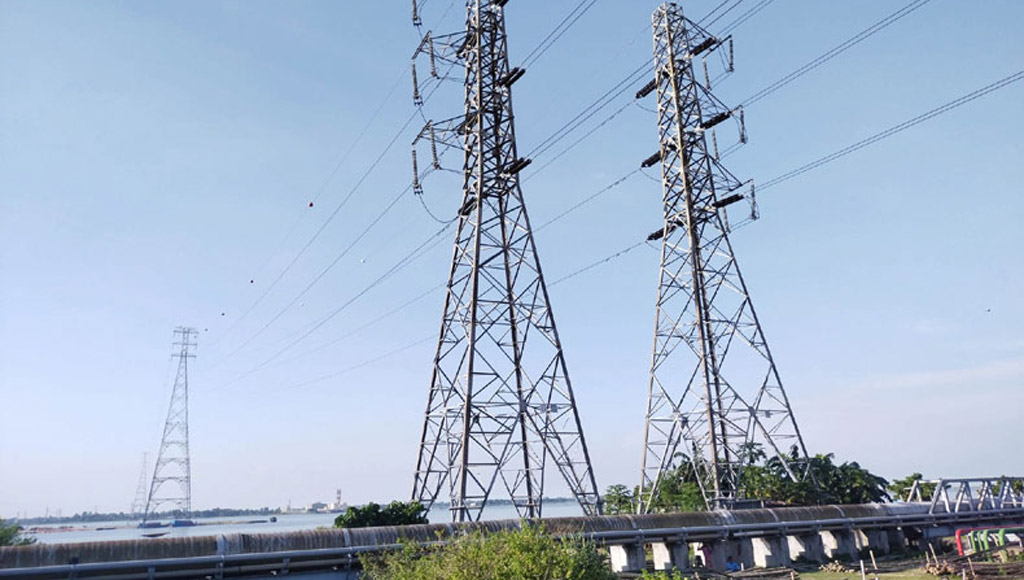
The overall subsidy in the coming national budget is likely to sustain over Tk 90,000 crore with more than one third to be spent for the power sector plagued with overcapacity that benefits private power producers mostly due to capacity charge.
Finance Division officials said that the subsidy for the power sector will be around Tk 35,000 crore in the FY25, beginning from July 1.
Almost same amount of subsidy has been provided to the power sector in the outgoing FY24 from Tk 17,000 crore in FY23, they said.
The power price hike for at least on four occasions in 2023 and 2024 does not help much in reducing the pressure for subsidy as a good amount of the new budget allocation for power sector will be spent for clearing arrears, they added.
Economists blame the overcapacity in the power sector for the growing subsidy.
The country has been suffering from more than 50 per cent power overcapacity as the production ranges up to 13,000 megawatts against the generation capacity of 27,000MW.
Many power plants remain idle but are compensated with the capacity charge, a controversial rule by which private electricity generation companies receive payment from the government whether they produce power or not.
Consumers Association of Bangladesh energy adviser M Shamsul Alam said that the current government increased the generation capacity mainly to benefit private sector power producers.
Major portion of the subsidy has been spent on capacity charge in the ineffective power sector, he lamented.
In September 2023, state minister for power, energy, and mineral resources Nasrul Hamid told parliament that Tk 1,04,000 crore was spent for the capacity charge since 2009.
Finance division officials said that the second highest amount of Tk 25,000 crore will be kept aside for subsidy on fertiliser.
The country consumes around 60 lakh tonnes of fertiliser annually, of which nearly 80 per cent is imported.
The annual subsidy for fertiliser went up significantly due to its price hike in the international market.
The subsidy for food will be around Tk 6,000 crore, said the Finance Division officials.
Some Tk 7,000 crore will be allocated for the import of liquefied natural gas, they said.
The state-owned Petrobangla has been importing LNG since 2019 to meet the high demand after its supply from local wells fell amid a lack of development of new gas fields.
The daily demand for gas in the country is around 4,000 million cubic feet or mmcft for power plants, fertiliser factories, manufacturing plants, and households.
The state-owned Petrobangla supplies around 2,700 mmcft daily, one third of which comes from imports.
It has been importing LNG from Qatar and Oman on long-term deals and purchasing it from the spot market since 2020.
Until January, the Petrobangla imported 54 LNG cargoes, each containing 33.60 lakh MMBtu.
Finance Division officials said that the subsidy bills for exports will be around Tk 7,825 crore and Tk 6,200 crore for remittance.
The government has been providing cash subsidy to exporters of different products such as readymade garment, leather goods, jute and jute goods, frozen food and vegetables at different rates.
It has been providing 2.5 per cent cash incentive against the inflow of remittance, which is crucial in maintaining the country’s balance of payment.
The balance of payment has been under stress since 2022 due to shortage of dollars.
To overcome the shortfall in the forex reserve, the government is borrowing $4.7 billion from the International Monetary Fund asking for rationalising the subsidy in the budget to increase allocations for education and health.
Despite criticisms, the government could not increase allocations to the two sectors over the years.
Former World Bank Dhaka office chief economist Zahid Hussain identified lack of fiscal spaces as a major reason for the less than expected allocations to these two sectors.
He also identified low revenue generation as another major cause of the shortage of resources.
New Age

